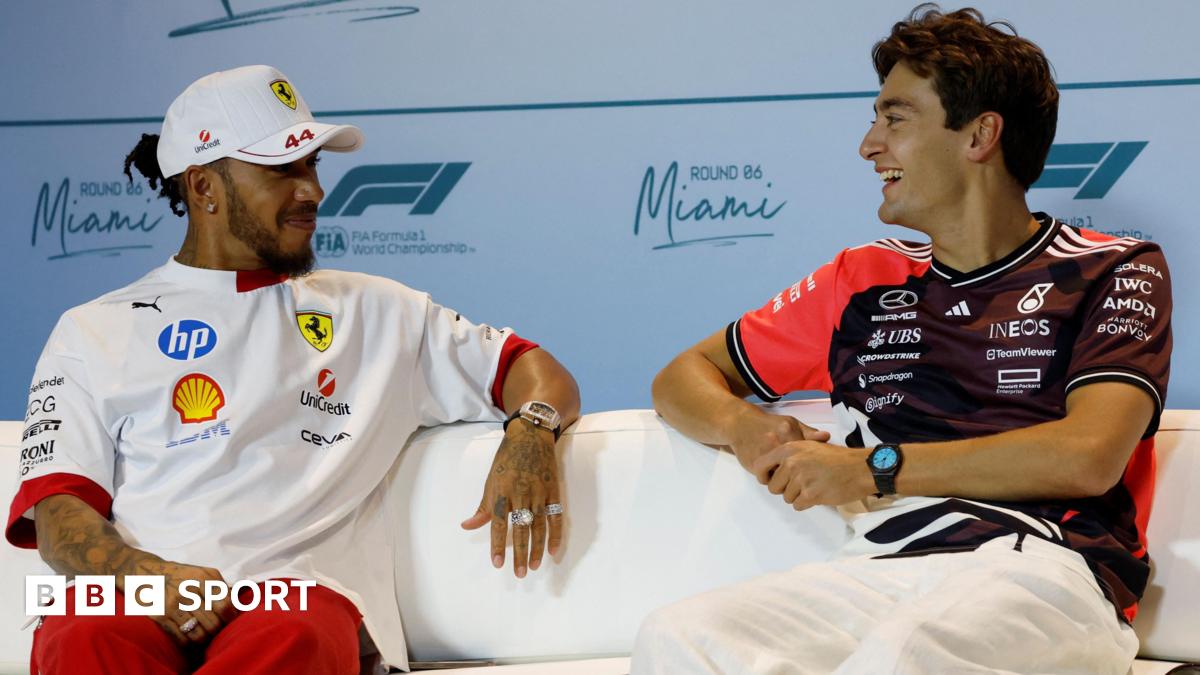Celebs Go Dating expert shares reaction to Christine McGuinness’ shock exit
Model Christine McGuinness, who announced her split from Paddy McGuinness in 2022, issued a statement on her sudden exit from E4 reality programme, Celebs Go Dating
Celebs Go Dating expert Dr Tara Suwinyattichaiporn said she ‘admires’ Christine McGuinness for ‘putting her wellbeing first’ after the model abruptly quit filming for the E4 show. The 37-year-old, who announced her split from Paddy McGuinness in 2022, issued a statement on her departure, including revealing how she had a realisation during production.
Christine was revealed as part of the line-up last week, with her having been set to appear in the fourteenth series of the E4 show alongside the likes of Kerry Katona. Filming was already underway for the show and the cast are understood to have jetted off to Ibiza for a trip recently, but Christine said the experience is “too soon” for her.
READ MORE: Le Creuset iconic rainbow mugs below £8 in deal cheaper than Amazon Prime Day
Christine said in her statement: “I joined Celebs Go Dating with great intentions but have realised that dating on a public platform and the attention that brings is just too soon for me.
“They’ve said the door is always open for me which I’m so grateful but for now I’m returning home to my family.” A spokesperson for Celebs Go Dating said in a statement that those behind the show have “loved” working with Christine and “respect her feelings”.
They said: “We have loved having Christine on the show and completely respect her feelings and decision to return home and have told her that the door is always open for her in the future at the agency.”
Following her statement, Dr Tara, the show’s ‘sexpert’, shared her thoughts on the departure and said it was ‘incredibly brave’ of Christine to recognise ‘when the timing isn’t right’.
“Her situation outside of the show is very complex so we will focus on helping her gain clarity about what she wants to do moving forward and build confidence in dating again,” Dr Tara said to The Sun.
“As a dating expert, I admire Christine for putting her wellbeing first. Opening up to love on such a public platform isn’t easy, and it’s incredibly brave to recognise when the timing isn’t right.” She added the show would ‘welcome her back with open arms’ if she feels ready in the future.
Dr Tara is currently out in Ibiza filming alongside returning experts Anna Williamson and Paul C Brunson, alongside celebrity clients including Kerry Katona and Love Island star, Olivia Hawkins.
Christine’s involvement with the show comes three years on from the news that she had separated from Paddy McGuinness. The former couple, who have three children together, announced that they had split up back in 2022.
Speaking about joining the show, Christine previously said: “I’m really excited to be joining the agency, I’m going to have a summer of fun! Who knows what might happen? I’ve not really dated much before, so I feel like I’m doing a crash course!
“I’m looking forward to getting to know the other celebs and I’m especially looking forward to the coaching side of things with the agents. I think that’s going to be good for me.”
Follow Mirror Celebs on TikTok, Snapchat, Instagram, Twitter, Facebook, YouTube and Threads.
READ MORE: Discounted Ninja outdoor oven pizza is ‘better than takeaway’ say shoppers
UK seaside resort’s new 293-mile train line linking two cities and major airport
If approved, the ambitious project which will also stop at Gatwick Airport, could see its first trains running by December 2026
A new direct rail service aims to reshape long-distance travel between two of the UK’s most iconic cities — Brighton and Newcastle.
Spearheaded by the Arriva Group under its Grand Central brand — which also runs services connecting Sunderland and Bradford with King’s Cross in London — the proposal is currently under review by the Office of Rail and Road (ORR).
Current train routes between Brighton and Newcastle typically require passengers to change in London. The proposed service would eliminate this need, offering a seamless, direct connection that links not only these two cities, but also a host of towns and transport hubs along the way.
READ MORE: UK set to launch £1billion 105-mile long Tube line with trains every 5 minutes
The full planned calling pattern of the route is: Newcastle, Durham, Darlington, Northallerton, York, Doncaster, Sheffield, Derby, Burton-on-Trent, Birmingham New Street, Warwick Parkway, Banbury, Oxford, Reading, Wokingham, Guildford, Redhill, Gatwick Airport, Haywards Heath and Brighton.
The new service aims to operate five trains per day in both directions, with each accommodating up to 300 passengers, as well as luggage space for airport travellers, onboard catering, Wi-Fi and charging points.
Enhanced connectivity will directly link underserved towns and cities with major hubs like Gatwick Airport and the South Coast, opening up new opportunities for employment, education and tourism.
Improved rail links are known to stimulate local economies, making it easier for people to access jobs and businesses to reach new markets. The direct connection to Gatwick Airport is particularly significant for communities in the Midlands and North East, offering a convenient, lower-carbon alternative to driving to London for international travel.
Arriva Group’s proposal is part of a wider European strategy to promote sustainable transport and regional integration. The company has recently invested around £300 million in a new battery-hybrid train fleet for its existing routes, underlining its commitment to innovation and environmental responsibility.
The plans are part of a broader commitment to “strengthening regional connectivity and making better use of available rail capacity”, Arriva Group said.
Managing Director of Arriva UK Trains’ Rail Services, Paul Hutchings, said: “We’re committed to connecting communities and enabling more people to travel in ways that are convenient and sustainable, so we’re very pleased to be submitting this application for the first direct service between Newcastle and Brighton, opening up new travel opportunities and making better use of available network capacity – all while building on Grand Central’s proud history of connecting traditionally underserved communities.
“This is an exciting time for Grand Central’s growth story and follows the extension of our existing access rights to 2038 as well as the recent announcement of an investment of around £300 million in a new battery hybrid train fleet for our existing routes, further underlining our commitment and ambition for rail in the UK.”
He added: “We’re very pleased to be submitting this application for the first direct service between Newcastle and Brighton, opening up new travel opportunities and making better use of available network capacity”
Chief Commercial Officer of Gatwick Airport, Jonathan Pollard, added: “We welcome Arriva’s exploration of a regular service between Gatwick, the Midlands and North East. Gatwick is keen to encourage passengers to use public transport and this enhanced connectivity would support underserved areas, while strengthening and growing our catchment.”
The proposal is awaiting regulatory approval from the ORR. If approved, the Newcastle-Brighton service could see its first trains running by December 2026. Not only would it provide a vital new north-south connection, but also make cross-country rail travel more accessible, sustainable and attractive for generations to come.
Daniel Moynihan, 76; Served 4 Presidents
WASHINGTON — Former Sen. Daniel Patrick Moynihan, a scholar-politician who was the only American to have served four successive presidents in high-level positions, died Wednesday afternoon at Washington Hospital Center. He was 76.
Moynihan died as a result of complications stemming from a ruptured appendix, said his former aide, Tony Bullock. He had been in the hospital since March 10.
He had surgery to remove his appendix the next day and appeared to be recovering. But on March 14 he was transferred to the intensive care unit, where he was treated for an infection, pneumonia and low blood pressure.
Moynihan rose from a broken family to become an author, teacher, diplomat and advisor to presidents of both parties. He served in the administrations of Presidents John F. Kennedy, Lyndon B. Johnson, Richard M. Nixon and Gerald R. Ford. He was ambassador to India and to the United Nations. And he wrote or edited 18 books.
President Bush called Moynihan an “intellectual pioneer” committed to freedom for people around the world and equal opportunity for all Americans. “He committed his life to service and will be sorely missed,” Bush said in a statement.
Moynihan spent 24 years in the Senate as a Democrat from New York before retiring from public office in 2000. He then became a senior scholar at the Woodrow Wilson International Center for Scholars in Washington and a professor at Syracuse University.
“He understood that being a U.S. senator was a precious trust,” his successor, Sen. Hillary Rodham Clinton (D-N.Y.) said on the Senate floor in announcing Moynihan’s death. “We have lost a great American.”
Rep. Charles Rangel (D-N.Y.) called Moynihan an “intellectual superstar, and a bona fide expert on both foreign and domestic policy.” Sen. Charles Schumer (D-N.Y.) noted: “It’s very hard to find consensus among 19 million New Yorkers, but just about every one of the 19 million New Yorkers loved Pat Moynihan.”
Former New York City Mayor Rudolph Giuliani said Moynihan established himself “as one of our nation’s most eloquent voices in the quest for a more civil society. Sen. Moynihan was the very example of what a statesman should be.”
Sen. Dianne Feinstein (D-Calif.) said Moynihan was blessed with a brilliant mind and an acerbic wit. “When he left the Senate, we all knew that the place would never be the same without him,” she said. “Now that he has passed on, the same is true of American politics.”
A congressional colleague once called him the “cerebral center” of the Senate, where the 6-foot, 4 1/2-inch former Harvard professor delivered lectures rather than speeches, and defied easy political categorization. His comments were often sprinkled with historical and philosophical references.
He was a leading defender of social welfare programs, even when it put him at odds with President Bill Clinton, a fellow Democrat. And after his retirement from the Senate, he continued to champion efforts to keep Social Security solvent, accepting President Bush’s appointment to head a federal commission on the program’s future.
Although Moynihan was not known for specific legislation, he was influential in shaping the debate.
Sen. Clinton said Moynihan came to the Senate floor armed with three signature items: his horn-rimmed glasses, a bow tie and a great idea.
“His soul was anchored in the New Deal, but it was his ability to enhance that social contract to meet the challenges of the 21st century that helped transform the lives of millions of New Yorkers and Americans,” she said in a statement Wednesday.
“Whether it was Social Security, Medicare, education, health care, the environment, fighting poverty or historic preservation, every issue illustrated what Sen. Moynihan did best: He used the power of an idea as the engine for change.”
As an aide to Nixon, he caused a furor when he recommended a policy of “benign neglect” for dealing with race relations. He contended that the remark was misinterpreted, and that what he was calling for was a cooling off of the inflammatory rhetoric over race.
The Almanac of American Politics once described Moynihan as “the nation’s best thinker among politicians since Lincoln, and its best politician among thinkers since Jefferson.” Or, as Congressional Quarterly’s Politics in America 1994 put it, he was “part Irish bartender, part Harvard professor.”
Philip A. Klinkner, a professor of government at Hamilton College in New York, said Moynihan was an “intellectual giant in the Senate” who, among other things, led the way in the 1960s to a rethinking of the politics and policy of race, welfare and urban life.
Born March 16, 1927, in Tulsa, Okla., Moynihan was 10 when his father, a hard-drinking newspaperman, walked out on the family. At 16, Moynihan became a longshoreman on the piers of New York City’s West Side. He attended City College of New York for one year before enlisting in the Navy, where he served as a gunnery officer. After military service, he went to college on the GI Bill, earning bachelor’s, master’s and doctoral degrees from Tufts University. He also was a Fulbright scholar at the London School of Economics.
He became active in Democratic politics in the 1950s, working on W. Averell Harriman’s successful campaign for governor of New York and later on his staff, where he met his wife-to-be, Elizabeth Brennan.
In 1961, he went to work for Kennedy at the Department of Labor.
After Kennedy’s assassination, he said, “I guess there’s no point in being Irish if you don’t know that the world will break your heart one day.”
He stayed on at the Department of Labor under Johnson.
But even before his famous “benign neglect” memo, he ended up at the center of another race controversy. In 1965, he wrote a report attributing problems among blacks to the deterioration of the family structure. Critics said the report blamed victims for their difficulties.
Years later, Moynihan defended his record on minorities, noting a 1965 speech often called the best civil rights speech President Johnson ever gave.
“Well,” said Moynihan, “I wrote that speech.”
In mid-1965, he ran unsuccessfully for New York City Council president. The next year, he was named director of the Harvard-MIT Joint Center for Urban Studies. In 1969, he returned to Washington as urban affairs advisor to Nixon, who later named him ambassador to India.
During the Ford administration, Moynihan served as ambassador to the United Nations, where he earned a reputation as a staunch defender of Israel, speaking out against a resolution declaring Zionism racism.
At times, he clashed with Secretary of State Henry A. Kissinger.
“I can’t count how many times — once a month — either Pat Moynihan or Henry Kissinger was threatening to resign,” Vice President Dick Cheney, another veteran of the Ford administration, recalled at a 1986 meeting of presidential advisors as he reminisced about the “battle of those big egos.”
Moynihan returned to Harvard after only eight months at the United Nations, but politics beckoned. In 1976, he won the Democratic nomination for the U.S. Senate from New York in a contentious primary that included Rep. Bella Abzug and former U.S. Atty. Gen. Ramsey Clark, and easily defeated the incumbent, James Buckley, in November.
He was reelected in 1982, 1988 and 1994 and, though he probably would have won easily, chose not to run for a fifth term in 2000.
Former colleagues on both sides of the aisle remembered Moynihan on Wednesday for his intellect, wit and dedication to public service.
“He brought a breadth of learning, a brand of civility and a respect for the best that government and public service have to offer that is missing more and more today,” said Sen. Patrick Leahy (D-Vt.).
Sen. Trent Lott (R-Miss.) said he loved Moynihan’s knowledge.
“I would just pick a country, say, ‘Tell me about India.’ An hour later, he was still talking,” Lott said.
Though Moynihan held many lofty titles, one of his lesser-known jobs was as staff director of the Ad Hoc Committee on Federal Office Space in 1961. It became the launching pad for his passion for public architecture.
He was a driving force behind the effort to renovate Pennsylvania Avenue, the elegant Washington boulevard that runs in front of the White House.
He also was known for his ill-fated attempt to save New York City’s old Pennsylvania Station from the wreckers. Though he failed in that effort, he led a successful project to convert a post office building built in much the same grand design into a new Penn Station.
In 2000, he was awarded the Medal of Freedom by President Clinton.
Moynihan is survived by his wife of 47 years, Elizabeth Brennan Moynihan; their three grown children, Timothy Patrick, Maura Russell and John McCloskey; and two grandchildren, Michael Patrick Avedon and Zora Olea Moynihan.
A Mass will be said Monday at St. Patrick’s Church in Washington. Burial will be at Arlington National Cemetery.
The family has requested that no flowers be sent and that any donations in Moynihan’s memory be directed to Washington Hospital Center Foundation, c/o Surgical Critical Fund, East Building, Room 1001, 100 Irving St. NW, Washington, D.C. 20010.
Miami Grand Prix: George Russell says it is ‘not nice’ to see Lewis Hamilton struggling at Ferrari
Hamilton said at the last race in Saudi Arabia – where he finished seventh, 31 seconds behind third-placed Leclerc – that the season ahead was looking “painful”.
He is two places and 16 points behind Leclerc in the championship.
But Russell said that critics of the time it is taking Hamilton to adapt to Ferrari were “underestimating how difficult Formula 1 is”.
“Sometimes you can just jump in and it clicks, and it’s straightforward,” Russell said. “Other times, it doesn’t click.
“The second seat at Red Bull (alongside Max Verstappen), why has that never worked out? It’s because Formula 1’s bloody difficult.
“You know, you’re going up against the best drivers in the world and Charles is one of the best in the world, in a team that he’s been for his whole career, in a car that he knows exactly how to get the most out of.”
Russell also said that the quality of Leclerc’s driving this season should not be underestimated in any assessment of Hamilton.
“Charles has also gone a bit under the radar this year,” Russell said. “He’s having an immense season. He had a strong race in China with a broken front wing. He had a super-strong race in Bahrain and arguably the safety car stopped him from beating me. He could have had three podiums this season.
“Charles has been doing a mega job and you’d also be questioning Charles if a driver comes in and is on his pace straight away.”
Russell added that Hamilton getting back to his best was “all psychology – it’s not about working harder. It’s about your mental state. If you’re not happy, it’s difficult to drive quick as well.”
Hamilton’s struggles have led some to question whether he is past his best.
He struggled against Russell in qualifying last year, too, losing the head-to-head battle 19 times to five at an average advantage over the season of 0.171 seconds. They won two races each and Russell finished a place and 22 points ahead in the championship.
In their first two seasons together, the pair were separated by mere hundredths of a second on average in qualifying, Russell finishing ahead in the championship in 2022 and Hamilton in 2023.
World Food Programme strained in Sudan as rainy season, funding cuts loom | Sudan war
More than 400,000 people had to pick up and leave when the Sudan’s paramilitary Rapid Support Forces attacked the Zamzam refugee camp. With the rainy season and funding cuts on the horizon, the World Food Programme is worried how they will care for them and millions of others.
Published On 2 May 2025
Nepo babies or superstars in waiting?
 Getty Images
Getty ImagesWhile most 13-year-olds were spending their Monday evening stressing over homework, awkward school crushes and what to post on TikTok, Blue Ivy Carter was performing in front of a crowd of 70,000 people alongside her mother Beyoncé on the opening night of her Cowboy Carter tour.
Her numerous cameos throughout the show – particularly her solo dance during Déjà Vu – were highly praised.
“She must be one of the most self-disciplined 13-year-olds in America,” Variety’s Chris Willman wrote. On social media, fans said the child prodigy was the “greatest nepo baby of all time” as they marvelled at her flawless dance routines.
Being a nepo baby – shorthand for the children of celebrities who often find themselves fast-tracked into industries such as film, fashion, and music – may have been scorned at in the past, but Blue Ivy’s performance may have complicated the narrative.
The teen had access to a stage that most could only dream of, but she also delivered a performance that fans and critics agreed was very impressive, which raises the question: Is this just another example of a celebrity child given an unearned spotlight, or could Blue Ivy be a genuine star in her own right?
‘An easier ride’
This is also not the first time Blue Ivy has performed in public – she joined her mother on stage two years ago on the Renaissance tour and last year voiced the character of Kiara in The Lion King prequel Mufasa: The Lion King.
But music journalist Caroline Sullivan says Blue Ivy’s trajectory to stardom “has very little to do with her and everything to do with the parent”.
“It’s about how much we like or dislike the parent – Beyoncé is well liked so fans will praise Blue Ivy,” she explains. “Of course, it helps that she’s good at what she does but even if she wasn’t, she’d be given an easier ride.”
Sullivan also says that the authenticity of Blue Ivy wanting to perform instead of being forced to do it by her mother adds to how we perceive her.
 Getty Images
Getty ImagesSpeaking to the BBC last month, Beyoncé’s mother, Tina Knowles, said Blue Ivy and her siblings were being nurtured to do “anything that they want for themselves… but definitely not pushed into show business”.
She added that her granddaughter had had to “work for” her role in The Lion King prequel and she “worries about the fame” impacting her grandchildren.
Blue Ivy is hardly the first child to have performed on stage with a famous parent. Madonna’s 17-year-old daughter played the piano on her mother’s Celebration tour in 2023, Dave Grohl’s 19-year-old daughter has often sung with him on stage and Phil Collins’ son was the drummer on his 2019 tour.
“It’s not because he’s the boss’s son that he’s playing the drums, it’s because he’s good enough,” the former Genesis drummer said in 2019 as he defended his decision to take his 17-year-old son on his world tour.
Sullivan says it can often be “naff and cringy” if a musician brings their child on stage “just for the sake of it”, but if done right, it can be “incredibly sweet and show a lot of love”.
Many critics, including Tomas Mier from the Rolling Stones, said Beyoncé’s youngest daughter Rumi joining her on stage for Protector was “one of the most heartwarming moments of the evening”.
 Shutterstock
ShutterstockKim Kardashian and Kanye West’s 11-year-old daughter, North West, has also forged the beginnings of a music career, recently delivering a rap verse in Japanese on FKA Twigs’ single Childlike Things.
Twigs said she chose to collaborate with North West because her “energy is so inspiring” and she was “so confident”.
“I wasn’t that confident when I was a kid. I was so shy, I was scared of the dark, I was very different to the other kids at my school. It suddenly occurred to me that I would have loved to have a friend like North, who could speak up for themselves.”
North West also appeared as Young Simba in the Hollywood Bowl’s The Lion King 30th anniversary concert last year but her singing was criticised on social media.
“Given how controversial her parents are, I think North West will struggle to break away from the nepo baby claims because unless she is unbelievably talented, she will be slated,” Sullivan says.
 Getty Images
Getty ImagesIn December 2022, New York magazine’s cover story on nepo babies caused a stir in the showbusiness industry.
The cover featured the faces of famous actors including Dakota Johnson, Jack Quaid, Zoë Kravitz and Lily Rose-Depp edited onto the bodies of babies, with the headline: “She has her mother’s eyes. And agent.”
The story claimed that “a nepo baby is physical proof that meritocracy is a lie” and that “today, they’re not only abundant – they’re thriving”.
It was met with backlash by many stars who claimed the label was unfair and diminished their hard work.
Gwyneth Paltrow, a nepo baby herself as the daughter of actress Blythe Danner and film director Bruce Paltrow, said the term was an “ugly moniker” and that children of famous people should not be judged negatively because “there’s nothing wrong with doing or wanting to do what your parents do”.
Similarly, Zoe Kravitz told GQ that it was “completely normal for people to be in the family business”, while Stranger Things actress Maya Hawke said a famous family name “definitely gives you massive advantages in this life but the chances will not be infinite; so you have to keep working and do a good job. If you do a bad job, the chances will stop”.
Almost Famous star Kate Hudson, daughter of actors Goldie Hawn and Bill Hudson, said in a 2022 interview with the Independent that “people call it whatever they want”, but the idea that children will follow in the footsteps of their parents is “not going to change”.
 Getty Images
Getty ImagesHudson was right that, in the three years since New York magazine’s cover story caused so much controversy, nepo babies haven’t slunk off into the background. In fact, they continue to thrive, particularly those with real talent.
Pam Lyddon, a PR executive in the entertainment industry says that there’s “no denying that being well-connected can absolutely help you succeed in the industry” but “while connections might get you noticed, you do still need genuine talent, hard work, and resilience to stay in the game – results speak for themselves and reputations are everything.”
She explains that for the new wave of nepo babies, talent is even more important as the “scrutiny is more intense and people are more media savvy” so you can’t get away with mediocrity.
As fans and critics continue to praise Blue Ivy, it seems that the credibility of nepo babies hasn’t been damaged by the nepo baby backlash, and if you have the star factor, your parents being Beyonce and Jay-Z is only going to help you fly.
Britain’s biggest toy chain with over 160 UK stores to close town centre site for good TODAY
A MAJOR UK toy chain is closing the doors to one its town centre stores for the last time today.
The Entertainer is ceasing operation of its outlet in Barrow-in-Furness, Cumbria from today.
The store has been one of The Entertainers more than 160 stores in the UK, which took over from an Argos eight years ago.
Staff and customers have expressed their disappointment in the stores closure.
Keith Stenhouse, Head of Region at The Entertainer, shared his regret: “We are sad to be closing our Barrow in Furness store as of 3rd May and would like to thank our customers and staff for their loyalty and support.
“We’re proud of the service we’ve offered and are committed to supporting our employees through this situation.”
He explained that it was a necessary decision from the company to shut down standalone stores that were “no longer profitable”.
This particular Entertainer store in Cumbria gained notoriety in the past due to the large donations it has made to charity, The Mail reports.
It gave away large amounts of toys to the children’s ward of Furness General Hospital during Christmas the year it opened.
The company has also made large donations to local charities, and was involved in Barrow BID, a group working to revitalise the town centre.
Taking to social media, shoppers reacted to the announcement of the scores closure.
One wrote: “Staff where brilliant I wish them every bit of luck in future as they always where very interactive with the kids it’s such a shame.”
Another added: “It’s a shame I always go here with grandson.”
A third also posted: “It’s such a shame it’s a lovely shop for the kiddies and it’s in town which is so important.”
John Edwards, who managed the store for a number of years, also expressed he was “incredibly sad” to see its closure, calling the site an “asset” to the community.
John added: “It was always important to me it wasn’t just a shop, it had to be an experience and be somewhere kids were excited to go – it’s a huge shame to lose that.”
This closure is among a number of stores that have been shuttered by The Entertainer in the past six months.
Other include outlets in Cameron Toll, Edinburgh, and Croydon, south London.
In January, its branch in Luton Point shopping centre shut for good, much to the dismay of the loca community.
One reacted to the news and said: “Luton is on its knees.”
Andrew Murphy OBE, group chief executive at The Entertainer, explained the store had closed after its lease agreement came to an end.
Speaking at the time of the closure, he said: “Like most large national retailers, we continuously assess potential new locations while deciding whether to renew those shops which have reached the end of their lease arrangements.”
RETAIL PAIN IN 2025
The British Retail Consortium has predicted that the Treasury’s hike to employer NICs will cost the retail sector £2.3billion.
Research by the British Chambers of Commerce shows that more than half of companies plan to raise prices by early April.
A survey of more than 4,800 firms found that 55% expect prices to increase in the next three months, up from 39% in a similar poll conducted in the latter half of 2024.
Three-quarters of companies cited the cost of employing people as their primary financial pressure.
The Centre for Retail Research (CRR) has also warned that around 17,350 retail sites are expected to shut down this year.
It comes on the back of a tough 2024 when 13,000 shops closed their doors for good, already a 28% increase on the previous year.
Professor Joshua Bamfield, director of the CRR said: “The results for 2024 show that although the outcomes for store closures overall were not as poor as in either 2020 or 2022, they are still disconcerting, with worse set to come in 2025.”
Professor Bamfield has also warned of a bleak outlook for 2025, predicting that as many as 202,000 jobs could be lost in the sector.
“By increasing both the costs of running stores and the costs on each consumer’s household it is highly likely that we will see retail job losses eclipse the height of the pandemic in 2020.”
Russia-Ukraine war: List of key events, day 1,164 | Russia-Ukraine war News
These are the key events on day 1,164 of Russia’s war on Ukraine.
Here is where things stand on Saturday, May 3:
Fighting
- A resident was killed in Ukraine’s southern Kherson region when a fallen attack drone detonated as the victim was trying to carry it away from a residential house.
-
At least 46 people were injured after Russia launched a mass drone attack in Kharkiv, Ukraine’s second-largest city, hitting a high-rise apartment block and triggering fires.
-
Kharkiv’s Mayor Ihor Terekhov said there had been Russian strikes on 12 locations in four central districts of the city.
- Terekhov said an 11-year-old child was among those injured in the latest Russian attack, and eight of the injured were being treated at a hospital.
-
Russia said its forces were continuing to create a “security strip” in border areas of Ukraine’s Sumy region after driving Ukrainian troops out of the Kursk region, just across the border in western Russia.
- More than 20 people were injured after Russian strikes hit the southern Ukrainian city of Zaporizhzhia.
- Ukrainian regional authorities said four people were also injured in a Russian joint drone and artillery attack on localities east of Nikopol city in southeastern Dnipropetrovsk region.
- Russia’s Ministry of Defence reports that its air defence units destroyed 10 Ukrainian drones in an hour. Eight of the drones were intercepted over the border region of Bryansk and two over Russian-annexed Crimea.
- Yury Slyusar, acting governor of Russia’s Rostov region, located on Ukraine’s eastern border, said Russian air defence units destroyed Ukrainian drones over five districts. Falling fragments from the destroyed drones had damaged some homes, he said, but there were no casualties.
- Ukraine’s internal security agency, the SBU, accused Russian intelligence of orchestrating an attempt to assassinate prominent Ukrainian blogger Serhii Sternenko, accusing an unnamed 45-year-old woman of carrying out the failed gun attack that injured the target.
Military aid
- President Volodymyr Zelenskyy denounces the latest barrage of drone strikes on civilian areas of Ukraine, while complaining that the country’s allies were moving too slowly in helping beef up his country’s air defence capability.
- The United States Department of State has approved the potential sale of F-16 training and sustainment, along with related equipment, to Ukraine for $310m, according to the Pentagon. The sale could include aircraft modifications and upgrades, flight training and maintenance.
Sanctions
-
New economic sanctions are being readied against Russia to intensify pressure on Moscow to embrace US President Donald Trump’s efforts to end its war on Ukraine, three US officials said. The targets include the state-owned Russian energy giant Gazprom.
Politics and diplomacy
- Ukrainian armed forces will take part in a British military procession on Monday celebrating the 80th anniversary of Victory in Europe (VE) Day, which marks the end of fighting on the continent during World War II.
-
US Vice President JD Vance and Secretary of State Marco Rubio have renewed calls on Russia and Ukraine to reach a peace deal, saying there was no clear end in sight to the conflict and warning that Trump needed a breakthrough “very soon”.
Chuck DeVore has a staunch conservative record
Republican U.S. Senate candidate Chuck DeVore made sure that the June 8 ballot described him as “Assemblyman/Military Reservist” because, the Irvine lawmaker said, he didn’t want to be mistaken for just another politician.
The remark reflected his effort to portray himself as an outsider in California politics — albeit one in sync with both the Republican faithful and the “tea party” protesters who have fanned voter disdain for officials in Washington and Sacramento.
“What I have is a solid public record of conservative credentials, whether in office, in the community, or in the uniform of the United States Army,” DeVore, 48, said during a recent debate with his opponents or the GOP nomination to challenge incumbent Democrat Barbara Boxer in the fall.
Throughout the campaign, DeVore has emphasized his service as a military officer and a young Reagan White House appointee at the Pentagon as experiences that helped make him the most qualified candidate. But at times he appears to have overstated those accomplishments, particularly his experience under fire and his role in the development of a U.S.-Israeli anti-ballistic-missile defense program. He also has faced criticism for acting on behalf of a group with ties to political contributors.
A cornerstone of DeVore’s Senate bid is his 24 years in the California National Guard and U.S. Army Reserve, which he argues has given him national security expertise lacked by his better-known, better-funded GOP rivals; former Hewlett-Packard CEO Carly Fiorina and former Rep. Tom Campbell. He trails both in polls.
During a radio debate with them in early March, DeVore talked of being the sole candidate in the Senate race with military experience. “I’m a lieutenant colonel of military intelligence within the U.S. Army,” he said. His campaign material shows he’s a lieutenant colonel in the U.S. Army retired reserves.
DeVore said both references are accurate because the retired reserves are part of the Army: “My nameplate says U.S. Army.”
He spoke during the debate of being “shot at in Lebanon” but did not make clear that the shooting occurred in the 1980s while DeVore was a college student studying Arabic and other subjects in the Middle East. Nor did he note that while the shooting was in his vicinity, there was no indication he was a target or was in actual danger.
With Israelis
DeVore said in a later interview that he was a credentialed reporter for the Orange County Register when the shooting occurred. He said he had called the Israeli military requesting to see the Bekaa Valley in Lebanon — identifying himself as an American student studying in Egypt, a reporter and member of the U.S. Army Reserve — and was included in a media tour.
“The Syrians shot at us and kind of drove us off the hill, because they didn’t want press over there. It was like warning shots,” said DeVore, adding that he and the Israeli soldiers immediately took cover.
DeVore mentioned that former ABC News correspondent Bob Zelnick was among the journalists on the tour. Zelnick said the group climbed an observation tower in Israeli-occupied Lebanese territory, from which the Bekaa Valley could be seen. He recalls the Israeli troops taunting the Syrians, who fired shots in response. But Zelnick said they were out of range and that Israeli journalists present had publicly teased him for reacting to the gunshots. “Nothing I saw or experienced could reasonably be interpreted as our having been driven off the hill by Syrian fire,” he said.
Frank Dowse, a Fiorina supporter and a retired 20-year Marine veteran from San Diego who served as a top advisor to NATO, said any attempt by DeVore — subtle or not — to imply that the Lebanon incident was related to his military service “is a bad move.”
“Those are the kinds of things that will turn veterans off immediately,” said Dowse, president of the security consulting firm Agemus Group in San Diego.
In the interview, DeVore readily acknowledged that he never served in combat. He said it was “just the luck of the draw” that his National Guard units were not called into action during the wars in Iraq and Afghanistan.
“I was in a combat unit, but most of my career I was in a unit that was focused on the Korean Peninsula,” DeVore said. “The fact is, I enlisted in 1983, and I always went where the National Guard or reserves asked me to go.”
DeVore said he was “shot at” only once in his military career; during the 1992 Los Angeles riots. His National Guard unit was deployed near Baldwin Hills Crenshaw Plaza and, while the troops were on patrol, a gunshot blew out the window of a car about 20 feet away.
“We didn’t know whether it was a stray round, whether it was a sniper,” DeVore said.
Inspired by Reagan
DeVore said he decided in college to enter military service, inspired by then-President Reagan’s call to “reenergize the nation and stand up to communism.” After earning an ROTC scholarship, he transferred from Cal State Fullerton to Claremont McKenna College. He later worked in GOP campaigns in New England and Idaho.
His record in the years since provides a picture of an ambitious man who — despite his professed scorn for professional politicians — tried four times to be elected to the political establishment, starting with a bid for Congress when he was in his mid-20s, before winning his first office, a seat in the state Assembly, in 2004.
In 1986, he landed a job in the Reagan administration as an assistant to Margo Carlisle, assistant secretary of Defense for legislative affairs. White House personnel records show officials were impressed with DeVore’s service as an Army Reserve officer; the officials also noted his GOP campaign experience and the fact that DeVore’s mother chaired the Fullerton Republican Women’s Club.
DeVore’s references included Chief White House Science Advisor William Graham, a family friend from Mammoth Lakes, where DeVore went to high school and where his father owned an auto parts store.
While working at the Pentagon, DeVore says in his campaign literature, his “initiative helped develop the Arrow Anti-Ballistic Missile program.” The Arrow was proposed in 1986 as a way for Israel to defend itself from potential missile attacks from Iraq, Iran, Syria and other hostile nations.
DeVore, who was 25 at the time, said he approached U.S. Rep. Duncan Hunter, a San Diego County Republican, with an idea on how to skirt the congressional opposition to Reagan’s Strategic Defense Initiative — popularly known as “Star Wars.” Democrats had attacked the program as costly, ineffective and in violation of the 1972 Anti-Ballistic Missile Treaty with the Soviet Union.
If the U.S. funded an Israeli-built missile defense system, the U.S. would be able to study that country’s test data without violating any prohibitions on missile-defense testing in the U.S., DeVore said. He said he told Hunter that with the support of pro-SDI Republicans and pro-Israel Democrats, the proposal was sure to win congressional approval, which it eventually did.
‘Dear Colleague’
“So in his office, I dictated to him a “Dear Colleague” letter that he personally typed up on his Selectric typewriter,” DeVore said. “Within a week, Duncan Hunter had 40-plus signatures — House and Senate, Republican and Democrats, that went to Reagan and [then-Defense Secretary Caspar] Weinberger … the idea was born.”
Hunter was then a Republican on the House Armed Services Committee. In a recent interview, he recalled DeVore as a staunch advocate of the Arrow program on behalf of the Reagan administration — but Hunter said he wrote the letter, and pursued the idea, on his own.
“I drafted the letter that was signed by members of the Armed Services Committee, recommending that Israel embark on the missile defense program,” said Hunter, whose son now represents that congressional district.
Hunter said that he and members of the Reagan administration were working on ways to develop defenses to medium-range missiles at that time, so it would be difficult to credit any one person for the successful funding of the Arrow missile.
“No one in the administration said, ‘It was my idea’ — DeVore included,” Hunter said.
In 1988, Devote entered politics, quitting his congressional liaison job to join the field of candidates fighting to replace retiring U.S. Rep. Robert Badham, a Newport Beach Republican. He eventually withdrew and supported Republican Christopher Cox, who won the election and hired DeVore as his senior assistant.
After briefly considering a run for the state Assembly in 1990, Devore ran instead that year for the Orange County Board of Education, without success. In 2002, he lost a bid for the Irvine City Council. In 2004, he won his seat in the Assembly, where he is nearing the end of the maximum three terms allowed under term limits.
Before being elected to the Legislature, DeVore was vice president of communications and research for the Newport Beach firm SM&A Corp., a consulting firm that mostly helps aerospace companies pursue government contracts. DeVore worked for the company for 13 years.
In Sacramento, DeVore rose through the GOP ranks to become Republican whip, a post he quit last year in protest after legislative leaders from his party agreed to $18 billion in temporary tax increases to help balance the state budget. His votes and bills have mostly hewed to conservative GOP tenets: opposing government expansion, same-sex marriage, tax hikes and driver’s licenses for illegal immigrants, as well as favoring offshore oil drilling. Most of his bills have languished in committee, perhaps partly as a consequence of membership in the minority party.
Drawing attention
DeVore stepped into controversy almost immediately after taking office. As a freshman lawmaker, he came under scrutiny for filing legislation that would have halted evictions at a beachfront Orange County mobile-home park and benefited the businessman who had chaired his campaign finance operation.
In his 2004 campaign, DeVore received a series of loans from members of the family of Roberto G. Brutocao, his campaign finance chairman and a signatory of the master lease for the El Morro trailer park at Crystal Cove. DeVore also received more than $25,000 in donations from park residents and others with ties to the site.
The state had purchased the trailer park from the Irvine Co. in 1979 with plans to remove the residents. DeVore’s legislation would have extended the leases of 275 tenants for up to 30 years, which he said would generate much-needed revenue for the state to help reduce the budget deficit.
Claire Schlotterbeck, a consultant with the environmental group Friends of Newport Coast, called DeVore’s explanation “suspect.”
“He was obviously greatly influenced by not only the personal connection but the financial connection,” Schlotterbeck said. “He was, and is, not sympathetic with state parks — period. He just doesn’t think that’s a role a government needs to play.”
DeVore said El Morro was the only state park that generated net revenue, and bulldozing the place would have cut off money the state needed.
“The parks service was talking about a $1-billion backlog it had for maintenance. We keep adding parkland, but we don’t add money to take care of it,” he said, although he later withdrew his legislation, which had scant support.
DeVore said his relationship with Brutocao had had no influence on the legislation and that they had never met until shortly before the campaign.”I was trying to help people who lived in my district. In my mind, I was standing up to the state,” DeVore said.
This is one in a series of articles examining the backgrounds of the major candidates for California governor and U.S. Senate in the June 8 primary election.
Why can’t the Kings beat the Oilers? A familiar pattern emerges
EDMONTON, Canada — Stop me if you’ve heard this before, but the summer is starting early for the Kings after a first-round playoff loss to the Edmonton Oilers.
This one is a little different, though, because this was a season that had inspired rare promise before it ended Thursday in the same painful monotony as the last three, with the Oilers going on and the Kings going home.
And that’s particularly disappointing since the Kings tied franchise records for wins (48) and points (105) and set one for home victories (31) this season. Yet it ended with the team breaking another record: it has now gone 11 seasons without winning a playoff series, the longest drought in team history.
A postseason in which the Kings seemed primed for a long run lasted just six games, the last a 6-4 loss to the Oilers at Rogers Place that leaves the organization once again shuffling off into the offseason plagued by doubt, frustration and one big question.
Edmonton Oilers Adam Henrique and Trent Frederic celebrate after scoring in the first period against the Kings during Game 6 of their playoff series at Rogers Place on Thursday.
(Andy Devlin / NHLI via Getty Images)
What happened?
“Having the season that we had, the group of guys in this locker room, and know, to come up short again? It sucks,” said captain Anze Kopitar, who scored the team’s final goal of the season. “It’s frustrating. This one hurts a little more.”
Hurts a little more because the Kings lost more than a game and a series Thursday. They lost a golden opportunity. Rarely has a postseason set up so favorably for the team.
After acquiring Andrei Kuzmenko at the trade deadline, the Kings went on a tear, winning 17 of their final 22 games, averaging better than 3.7 goals a game. The once-punchless power play became potent; goalkeeper Darcy Kuemper went 15 games allowing two or fewer goals, the second-longest streak in the NHL’s expansion era; and the team sprinted past the Oilers to place second in the Pacific Division, its best finish in nine seasons.
No team finished the season hotter nor healthier than the Kings.
That also meant the Kings, who had the best home record in the NHL in the regular season, would have the home-ice advantage for the first round of the playoffs. And if they finally got past an Edmonton team that limped into the postseason wounded, they would have faced Las Vegas in the second round and a team from a quartet of Winnipeg, Dallas, Colorado or St. Louis in the Western Conference final.
The Kings were a combined 8-4-1 against those teams in the regular season. It wasn’t outlandish to think the Kings had a shot at the Stanley Cup final.
“It’s all going according to plan,” one team executive whispered early in the playoffs. And then it wasn’t, with the Kings once again tripping over a familiar hurdle.
“One hundred percent it’s a missed opportunity,” Kings coach Jim Hiller said. “We had great buy-in from our players. We believe we could have won the series. We believe we should have won the series. We didn’t.
“So that’s the bottom line.”
The Oilers have proven to be the kryptonite to even the most Superman-ish of Kings teams, with Edmonton the place the Kings postseasons go to die.

Highlights from the Edmonton Oilers’ 6-4 win over the Kings in Game 6.
The teams have met in the playoffs 11 times since 1982 with the Oilers winning nine of those series, including the last four in a row. The last time the Kings beat Edmonton in the playoffs, in 1989, Wayne Gretzky led the team in points, current general manager Luc Robitaille was in his third season as a player while Kopitar, the only player on this year’s team who was even alive then, was still in diapers.
The year’s loss may be the most painful of the lot though.
The Kings had the home-ice advantage, one of the league’s top three goaltenders in Darcy Kuemper and the top power play in the playoffs. They led in every game.
Yet they still lost in six.
The turning point in the series came in late in Game 3. After dominating the first two games at home, the Kings were leading the first game in Edmonton with about seven minutes to play when disaster struck. After the Oilers’ Evander Kane tied the game on a controversial goal, Hiller challenged the call, arguing for goalie interference. He lost, Edmonton was awarded a power play, and 10 seconds later the Oilers went in front to stay.
In Game 4 the Kings led with less than 35 seconds to play when Quinton Byfield failed to make a simple clearance out of the Kings’ zone. The Oilers pounced on the mistake to tie the game, then won it in overtime. They never lost again.
“You can pinpoint Game 3, we didn’t close out,” Kopitar said. “Definitely Game 4. It’s a completely different series if we go home up 3-1 versus 2-2. But could’ve, should’ve, would’ve.”
The Kings simply wore down, especially on the blue line. That’s why they gave up a playoff-worst 15 goals in the third period and overtime in the series. The Oilers scored just 12 times in the first and second periods combined.
Yet asked in his postgame press conference if he regretted how he used his defensemen, Hiller was curt.
“No,” he said.
And with that he walked away from the podium for the final time this season.
Edmonton Oilers fans celebrate their team’s playoff series win over the Kings Thursday at Rogers Place in Edmonton, Alberta, Canada.
(Andy Devlin / NHLI via Getty Images)
Then there’s the offense. Kopitar and Adrian Kempe combined for 19 points in the series, but had just one goal and two assists combined after Kane’s game-tying goal in Game 3.
“The chances were there. We just couldn’t convert,” Kopitar said. “Credit to their goalie, he made some good stops. Credit to their team. The last couple of games they played a solid checking game and made it harder on us to generate stuff.
“We fought and came up short.”
That’s beginning to sound redundant.
Trump signs executive order to halt funding to PBS, NPR

May 2 (UPI) — President Donald Trump has signed an executive order to halt federal funding to PBS and NPR, calling the public news organizations “biased.”
Trump, who has long criticized the two news organizations for alleged bias, signed the executive order Thursday, directing the Corporation for Public Broadcasting to cease direct funding to NPR and PBS to the maximum extent allowed by law.
To stem indirect public funding to NPR and PBS, the executive order calls on CPB to ensure that licensees and permittees of public radio and television stations as well as other recipients of its funds, do not use federal funds for the two news organizations.
All agency heads are also directed under the order to identify and terminate any funding to the organizations, which are also to be investigated by the Department of Health and Human Services for compliance with statutory mandates concerning employment discrimination.
NPR President and CEO Katherine Maher described Trump’s executive order as “an affront” to the First Amendment rights of her news organization, listeners and locally owned and operated stations across the United States that depend on their content.
“We will vigorously defend our right to provide essential news, information and life-saving services to the American public,” she said in a statement. “We will challenge this executive order using all means available.”
More than 70% of CPB’s congressionally approved $535 million budget goes directly to public media stations through grants.
According to NPR, about 1% of its annual operating budget comes in the form of grants from CPB and federal agencies and departments, excluding CPB funding for the Public Radio Satellite System.
According to PBS, federal funding covers about 15% of its revenue.
The White House on social media said they receive “millions from taxpayers.”
Trump signed the executive order just two days after CPB sued the Trump administration over its attempt to remove three of its board members.
In the lawsuit, CPB argues that it is not a federal agency but a private corporation and therefore is not subject to the president’s authority.
It also comes amid a GOP push to strip the two organizations of federal funds, and roughly two weeks after the White House issued a statement that amounted to a list of articles from NPR and PBS that the Trump administration took exception too, and framed as spreading “radical, woke propaganda disguised as ‘news.'”
On his Truth Social media platform early last month, Trump urged Republicans to abandon both PBS and NPR.
“REPUBLICANS MUST DEFUND AND TOTALLY DISASSOCIATE THEMSELVES FROM NPR & PBS, THE RADICAL LEFT ‘MONSTERS’ THAT SO BADLY HURT OUR COUNTRY!” he said.
CPB was founded in 1967 as a private nonprofit corporation to fund public television and radio stations and their programs.
A recent Pew study conducted in March found that 43% of respondents said NPR and PBS should continue to receive federal funding compared to 24% that said Congress should stop allocating the two news organizations money. The remaining 33% of respondents said they weren’t sure.
Former Tunisian PM handed 34-year sentence, rejects ‘terrorism’ charges | Politics News
Former Prime Minister Ali Larayedh and the opposition Ennahdha party have denounced the trial as politically motivated.
A Tunisian court has sentenced former Prime Minister Ali Larayedh to 34 years in prison over accusations he facilitated the departure of fighters to Syria – a charge the opposition figure strongly denies.
“I was neither sympathetic, nor complicit, nor neutral, nor lenient towards violence, terrorism,” Larayedh told the judge on Friday, rejecting what he and his Ennahdha party have called a politically motivated prosecution.
The ruling is the latest blow to the Ennahdha party, a major opposition force to President Kais Saied.
Larayedh, who served as prime minister from 2013 to 2014, has been in detention since 2022.
His sentencing comes just a week after the arrest of vocal Saied critic Ahmed Souab and new prison terms handed down to political opponents, media figures and businesspeople on various conspiracy charges.
According to state news agency TAP, the sentences apply to eight individuals, with prison terms ranging from 18 to 36 years. The court did not name those convicted alongside Larayedh.
Ennahdha denies all terrorism-related allegations, arguing that the case is part of a broader campaign against dissent that has intensified since Saied suspended parliament and assumed sweeping powers in 2021. The government maintains that Tunisia’s judiciary is independent, rejecting claims of political interference.
Human rights groups, however, say the crackdown on opposition voices – including the jailing of Souab – marks a dangerous escalation. Many warn that democratic gains in the birthplace of the Arab Spring in the years since the 2011 revolution are being steadily rolled back.
Growing protests against Tunisian president
Saied faced protests on Thursday as opponents took to the streets of Tunis, accusing him of using the judiciary and police to silence dissent.
The demonstration, the second in a week, comes amid growing alarm over what critics see as an authoritarian drift in the country that sparked the Arab Spring.
Marching down Habib Bourguiba Avenue, anti-Saied protesters chanted slogans including “Saied go away, you are a dictator” and “The people want the fall of the regime” – echoing the calls that fuelled the 2011 uprising that ousted former President Zine El Abidine Ben Ali.
Supporters of Saied held a counter-rally on the same boulevard, shouting, “No to foreign interference” and “The people want Saied again”.
The opposition accuses Saied of undermining the democracy won in the 2011 revolution, since he seized extra powers in 2021 when he shut down the elected parliament and moved to rule by decree before assuming authority over the judiciary.
Former guitarist for metal band Possessed killed in police shooting
Brian Montana, a former guitarist for the Bay Area death metal band Possessed, was killed in a shootout with police in South San Francisco.
The incident occurred April 28 after Montana, 60, confronted a neighbor about tree branches and leaves falling into his yard, according to a press release from the South San Francisco Police Department, first reported in the San Mateo Daily Journal.
“Officers began arriving on scene at 5:55 pm and immediately requested additional units because the suspect with the firearm was now actively shooting into an occupied residence,” the release stated. “The suspect then re-positioned himself into a driveway of that neighbouring residence and concealed his location behind parked vehicles while still armed.
“Over the next 25 minutes,” the release continued, “the suspect armed himself with three different types of firearms (handgun, shotgun, and rifle) and fired at officers from different locations within the driveway while seeking cover and concealment using both vehicles in the driveway and landscaping.”
Two officers on the scene returned fire and killed Montana. One resident in the home Montana shot at suffered a non-life-threatening injury in the shooting, and was taken to a local hospital for treatment. The officers were not injured.
San Mateo County Dist. Atty. Steve Wagstaffe told the Daily Journal that “On the shooter’s side, there was some alcohol involved. His death is a tragedy, but it’s fortunate that nobody else wasn’t hit or injured more seriously.”
Montana briefly played in the pioneering death metal band from 1983 to 1984. Possessed’s official Instagram posted a photo of Montana with a brief remembrance.
“I just feel like people should know that Brian Montana was a very nice guy. He was jovial and a gentleman,” the band wrote. “The Brian I know is from when we were still just kids back in the beginning of Possessed. He was nothing like what I’m seeing being written about him. … He was obviously going through some struggles and I think this is the time to be respectful towards the Montana family and friends as this is a tragic time for them. I’m sure there’s a lot more to this story, but that would be up to Brian‘s family to tell or not to tell. I know that I still feel this is a great loss and I’m deeply saddened.”
This isn’t the band’s first tragic brush with gun violence. Possessed’s vocalist, Jeff Becerra, was paralyzed from the chest down after being shot in an armed robbery in 1989. He has used a wheelchair ever since, but in 2021, he walked for the first time in decades with aid from robotic legs.
UK launches StormShroud drones that will fly ahead of Brit fighter jets & jam enemy air defences to ‘stand up to Putin’
ROBOT drones that can blind Russian radars will fly with RAF jets to protect them on missions.
A new fleet of StormShroud drones will use electronic warfare jammers to “knock out enemy air defences”, the MoD revealed.
The AI-powered drones – which are made in west Wales and Southampton – have been battle tested in Ukraine.
The UK fleet – which is thought to number about 24 – will be armed with world-class BriteStorm signal jammers that can dazzle enemy radars.
They are designed to spearhead air attacks – flying ahead of the fighter jets to clear a safe path through air defence missiles.
Downing Street said: “The drones offer a step change in capability by using a high-tech BriteStorm signal jammer to disrupt enemy radar at long ranges, protecting our aircraft and pilots.”
They added: “In revolutionary new tactics, the drones support aircraft like Typhoon and F35 Lightning, by confusing enemy radars and allowing combat aircraft to attack targets unseen.
“This means for the first time, the RAF will benefit from high-end electronic warfare without needing crew to man it, freeing them up for other vital frontline missions.”
RAF chief Sir Rich Knighton said: “This is a seminal moment for the RAF to maintain our advantage in air combat and national security.”
The AI-powered drones will act autonomously, detecting and disrupting enemy air defence networks.
Sir Rich added: “Autonomous collaborative platforms will revolutionise how we conduct a range of missions, from intelligence gathering to strike and logistical support.”
The Storm Shroud is based on a Tekever AR3 drone fitted with an “electronic warfare payload” made by Leonardo UK in Luton.
The RAF said: “Storm Shroud will support RAF F-35B Lightning and Typhoon pilots by blinding enemy radars, which increases the survivability and operational effectiveness of our crewed aircraft.”
The UK has emerged as a world leader in drone technology.
Our drone market generated around £94.66million in 2023 but is predicted to reach as much as £1.5billion by 2031.
Drones are currently used for an array of tasks including surveying buildings, decommissioning nuclear installations, inspecting dangerous structures and providing emergency searches.
The Royal Mail is even trialling drone delivery in remote areas.
While 84 per cent of budding drone businesses have fewer than 50 employees, analysts Drone Industry Insights said: “The drone market in the UK is among the top in the world, with significant potential for growth.
“The economy in the UK as a whole offers a unique opportunity for the drone industry to thrive, and it has witnessed significant advancements in the use of drones in recent years, particularly in healthcare and delivery.”
Meanwhile, a probe by The Sun on Sunday revealed that combat drones have now become the dominant killer on the battlefields of Ukraine.
Up to 80 per cent of casualties on both sides of the conflict have been caused by what are known by the military as “unmanned air systems”.
The figures from Western officials mean that eight out of ten soldiers being killed and wounded in the conflict are being targeted remotely by devices piloted by young soldiers often miles behind the front line.
MSC World America: What it's like onboard one of the world's biggest, most expensive cruise ships

The American dream – on a new 22-deck beautiful beast of a cruise ship, Jenny Green visits an eco treasure island and sails across the ocean onboard the towering new vessel
Source link
Saturday 3 May Labour Day (in lieu) in China
In China, if Labour Day (May 1st) falls on a Saturday, the “in lieu” day off, meaning the day that is given as a substitute holiday, would typically be the following Monday, May 2nd, as it’s common practice to shift weekend days to create a longer holiday period around national holidays like Labour day which is common place in Western countries
However in China national holidays often involve “adjusting” (调休 tiáoxiū) weekend days into working days, to extend the holiday period by aligning holidays with weekends. It’s been in place place since 1999 when the authorities modified the holiday system, extending Labour Day to three days from one.
But to achieve that, “adjusted days” were taken from weekends before and after to create one chunk of time-off.
Originally intended to provide workers with more time to rest, it became a lever to stimulate the holiday economy, giving rise to the concept of “Golden Week” (黄金周), when it feels like everyone in China is all on holiday at the same time. Labour day is one of the three “golden week” national holidays in China. This year, not including the two weekend days in the Labor Day break (May 4 and 5), and the two adjusted days from the weekends before and after the holiday, the break actually only offers one additional day off. And people are much less in the mood for opening anyway. So it’s a “fake holiday” according to an entertaining play on words: “It’s not a holiday, but a fake break.” (这不是放假,而是“假放”)
Court battle likely over Trump’s executive order to defund public broadcasting
President Trump issued a late-night executive order Thursday calling for an end to government dollars for the Corp. for Public Broadcasting, the taxpayer-backed entity that provides funding to public media outlets the president described as “left wing propaganda.”
But Trump’s ongoing effort to cut federal funding of public media outlets such as PBS and NPR already is facing stiff opposition.
The order is the latest attempt by Trump to limit or intimidate institutions he does not agree with, including law firms, universities and media companies such as CBS, which is being sued for $20 billion over a “60 Minutes” interview with former Vice President Kamala Harris during the 2024 presidential campaign.
The CPB immediately fired back Friday, with a statement asserting that the president does not have the power to cut off its funding — Congress does.
“Congress directly authorized and funded CPB to be a private nonprofit corporation wholly independent of the federal government,” the CPB said in a statement.
The White House is likely aware of that fact as it reportedly is expected to go to Congress with a formal request to claw back the $1.1 billion currently allocated for the CPB over the next two years.
But the president’s executive order will not help if the White House is taken to court over the issue, which appears likely.
A representative for the CPB did not comment on whether it will pursue legal action, but PBS President Paula Kerger said in a statement that the service is “exploring all options.”
“The president’s blatantly unlawful Executive Order, issued in the middle of the night, threatens our ability to serve the American public with educational programming, as we have for the past 50-plus years,” Kerger said.
NPR Chief Executive Katherine Maher said, “we will challenge this Executive Order using all means available.” She called Trump’s order “an affront to the First Amendment rights of NPR and locally owned and operated stations throughout America to produce and air programming that meets the needs of their communities.”
Both executives were pounded by Republican legislators in March at a hearing in the Capitol where a large photo of drag queen Lil Miss Hot Mess appearing on a PBS kids show was displayed behind committee chair Rep. Marjorie Taylor Greene (R-Ga.).
Jeffrey McCall, professor of communication at DePauw University, said there is a case to be made that government funding of public radio and TV outlets needs to be revisited as the media landscape provides a wide array of information sources that didn’t exist when the CPB was founded in the 1960s. Instead, the White House is “shooting itself in the foot” with political attacks.
“If they go to court over the issue, the first thing CPB lawyers are going to say is this is viewpoint discrimination and they will probably be right,” McCall said. “The way the Trump administration is going about this is a little clumsy because they are making this a political football.”
One reason for forming the CPB in the late 1960s was to prevent the government from using funding to exert editorial control over programming.
The president’s announcement of the executive order — titled “President Trump Finally Ends the Madness of NPR, PBS” — came with a litany of stories described as “examples of the trash that has passed for ‘news.’”
The examples included an NPR story on eating human placentas, a practice that has been around for decades, and a 2017 documentary about a transgender teen on PBS.
If the battle goes to Congress, public media could have the upper hand. As NPR and PBS executives have often pointed out, most of the CPB funding goes to local public radio and TV stations that are often the lone sources of journalism in their communities.
PBS cites data that shows 58% of all TV households tune into one of its member stations over the course of a year and that 60% of its audience lives in rural communities.
While the internet is cited as a reason to end public media funding, PBS noted that its programming is viewed in 87% of non-internet homes and 56% of low-income households.
Republican politicians in red states who don’t get a lot of face time on Fox News like having local outlets where they can reach their constituents. Such thinking has helped preserve public media funding in the past.
While Los Angeles outlets have a larger population to draw on for financial support from listeners and local underwriters, the loss of federal dollars would be significant.
LAist KPCC-FM (89.3) would lose about $2 million, a relatively small portion of an overall budget of roughly $45 million, but substantial enough that it could have an impact on staffing and programming, said a person familiar with the station’s operations who was not authorized to speak publicly.
KCRW-FM (89.9), stands to lose $1.3 million from a budget of $24 million, slightly more than 5%.
Times staff writer James Rainey contributed to this report.
Falkirk’s journey from League 1 to Premiership in two seasons
After five years of rage and ridicule, the Bairns could be forgiven for making the most of their Championship opener on a Friday night back in August.
From disco lights to fireworks, they pulled out all the stops – and did not stop there.
Kicking off the campaign with a five-game winning run – which included the fist win at Dunfermline’s East End Park in five years – they made a seamless transition back to the second tier.
Landmarks in the season – international breaks, first round of games, festive fixture – came and went with little fuss on the pitch but plenty excitement off it as the team remained at the top of the tree throughout.
That exhilaration was taken up yet another notch on 3 February when homegrown hero Scott Arfield, the former Rangers, Burnley and Canada midfielder, made a stunning return, 15 years after his exit.
“It was complete and utter Roy of the Rovers stuff,” McInally said of the academy product’s re-signing.
“There had been murmurings, then I got a couple of messages from people who know Scott saying ‘this is happening’.
“I was like, shut up, no way. Then it happened and it was such a buzz.”
With the number 37 on his back – a number that had been, and will be again – retired since the tragic passing of former team-mate Craig Gowans, Arfield marked his magical return with a hat-trick against Partick Thistle.
It proved to be the first of an eight-game unbeaten run that had the Bairns heading into the final six games with an 11-point advantage.
Get the fancy champagne looked out and the t-shirts sent to the printer. Back-to-back titles started to seem a matter of when, not if.
Judge strikes down Trump’s executive order targeting law firm Perkins Coie | Donald Trump News
A United States district judge has struck down an executive order from President Donald Trump that targeted the law firm Perkins Coie over its representation of his Democratic election rival Hillary Clinton.
On Friday in Washington, DC, Judge Beryl A Howell issued a five-page order declaring the executive order unconstitutional.
“Executive Order 14230 is unlawful, null and void in its entirety and therefore should be disregarded,” Howell wrote in the order.
The ruling is the first to permanently nullify one of the executive orders Trump has issued against a law firm. His administration is expected to appeal.
As part of Judge Howell’s order, the Trump administration must cease any investigations of Perkins Coie, restore any rescinded services and allow the law firm to resume its “ordinary course of business” with the government.
In her full 102-page ruling, Judge Howell spelled out her rationale, declaring Trump’s executive order represented “an unprecedented attack” on the country’s “foundational principles”.
“No American President has ever before issued executive orders like the one at issue in this lawsuit,” she said in her opening lines. “In purpose and effect, this action draws from a playbook as old as Shakespeare, who penned the phrase: ‘The first thing we do, let’s kill all the lawyers.’”
Trump’s executive order, she added, offers a new twist on that Shakespearean phrase: “Let’s kill the lawyers I don’t like.”
The case began on March 6, when Trump published Executive Order 14230 under the title, “Addressing Risks from Perkins Coie LLP”.
Citing the law firm’s work with Clinton during the 2016 presidential campaign, the executive order suspended the law firm’s security clearances, limited its access to government buildings and ordered agencies to terminate contracts with Perkins Coie when possible.
A handful of other law firms were also targeted with executive orders, including WilmerHale, Paul Weiss and Jenner & Block. Many had either represented causes unfavourable to Trump or had employed individuals with whom the president had expressed open displeasure.
But the idea that the president could withdraw services, security clearances, and even building access — simply because he disagreed with a law firm — raised questions about the constitutionality of those orders.
Critics pointed out that the First Amendment of the US Constitution protects individuals and companies from facing government retaliation for their free speech. The Fifth and Sixth Amendments, meanwhile, protect the right to due process and the right to seek legal counsel from law firms like Perkins Coie.
Many of the law firm’s clients had cases intimately involved with the inner workings of the government. Perkins Coie even said in its filings that its lawyers had to “necessarily interact with the federal government on behalf of their clients”.
It also added that some of its clients had started to reconsider working with Perkins Coie, in light of the executive order’s restrictions.
In April, more than 500 law firms signed an amicus brief in support of Perkins Coie, arguing that Trump’s actions “would threaten the survival of any law firm” — and scare away clients.
Judge Howell validated those concerns in her ruling, saying that the law firm had “shown monetary harm sufficient to establish irreparable harm”. She also called the executive order an “overt attempt to suppress and punish certain viewpoints”.
But rather than face such punitive action, several high-profile law firms decided to cut a deal with the White House.
Paul Weiss was believed to be the first to strike a bargain, offering the administration $40m in pro bono legal services. Others followed suit: The firms Skadden, Milbank and Willkie Farr & Gallagher each agreed to perform $100m in free legal services.
In her ruling, Judge Howell warned that Trump’s executive orders against law firms could have a chilling effect on the entire profession and were tantamount to a power grab.
“Eliminating lawyers as the guardians of the rule of law removes a major impediment to the path to more power,” she wrote.
The Constitution, she added, “requires that the government respond to dissenting or unpopular speech or ideas with ‘tolerance, not coercion’”.
Singapore votes as city-state prepares to mark 60 years of independence | Elections News
Singapore – David Wee has lived in the same terrace house with his family in the east of Singapore his entire life.
But over more than 40 years, the Wee family have been a part of five different electoral constituencies.
Singaporean electoral boundary changes occurring shortly before every general election have led government critics to raise accusations of gerrymandering – deliberately manipulating constituency boundaries to favour a particular political party.
According to Singapore’s Elections Department, which is overseen by the Prime Minister’s Office, the latest boundary changes – the most extensive in years – were driven by voter growth and future housing developments.
Despite the criticism, Saturday’s election in Singapore – where some 2.76 million people are scheduled to vote – is set to return the long-ruling People’s Action Party (PAP) to power.
The PAP has won every election in this prosperous global financial centre since declaring independence in 1965.
While there is little danger of the PAP losing power, elections here are seen as a test of public sentiment towards the ruling party. This election is also seen as a referendum on Prime Minister Lawrence Wong, who took over from former premier Lee Hsien Loong last year.

Voting is also compulsory in Singapore – where elections are held every five years, and though modelled after the United Kingdom’s Westminster parliamentary system, one of the quirks of Singapore is that voters are either part of a single-member voting constituency or a Group Representation Constituency (GRC).
People in a GRC, rather than vote for individual candidates, cast their ballots for teams of up to five politicians. Within each team, at least one candidate must be from a minority ethnic group.
Authorities say the team vote is to ensure minority representation in the city-state’s parliament, but critics say it is a means of parachuting new candidates into the legislature as part of a group.
The vote will see 97 members of parliament elected in 33 constituencies made up of 15 single-member constituencies and 18 GRCs. But with no opposition to contest one of the GRCs, the PAP has already scored a walkover for a five-member team, meaning just 92 seats will be contested today.
For David Wee, constituency boundaries are not really an issue.
“It’s something that can happen to anybody, especially if you live in a Single Member Constituency, which can be easily absorbed” into a GRC, he told Al Jazeera.
What is an issue though, he says, is the rising cost of living, inflation, and other concerns around life and work in one of the world’s richest nations.
“I will support whomever I think can serve the residents well,” he said, adding that Singapore’s voters are more discerning now and should not be taken for granted.
“Our voters have become more educated,” he said.
Singapore, after all, is “a developed country, not a developing country”, he added.

Singapore bling
Singapore is one of the world’s most expensive cities, with some of the highest living standards globally.
Alongside a world-class public transport system, it also has the most expensive cars in the world, thanks to a licensing system that sees owners shell out tens of thousands of dollars simply for the right to own a vehicle, alongside congestion pricing, road tax and other expenses.
“If you can’t afford it, you can’t afford it,” said Lim Meng Wee, 57, a consultant in the local real estate capital field who has owned several cars over the years.
“A car is a very expensive luxury. It eats into your balance sheet and you will have to keep working harder. I know of people who bought a car, and within two to three years, they were back to public transport,” he said.
Singapore’s economic success, generally low crime and expectation of personal safety for citizens has come in tandem with a low tolerance for dissent.
That has been enforced by wide-ranging laws that allow for, among others, penalties for wounding racial and religious feelings, as well as detention without trial. Labour strikes are outlawed too, and a permit is required for demonstrations, which is strictly observed.
One prominent dissident who held up a cardboard sign with a smiley face outside the State Courts in 2020 to make a symbolic point about the administration of justice was fined for illegal assembly.
In February, six people in their 20s were questioned by police and had their electronic devices seized over a protest at a local university against Israel’s war on Gaza.

Critics and media outlets have been the subject of defamation lawsuits by government ministers, while many politicians and activists were imprisoned from the 1960s into the 1980s.
In addition, the mainstream media is solidly pro-establishment while the country is ranked 123rd in the world in terms of press freedom. All media outlets must tread carefully with a government accustomed to taking matters to court when unhappy with coverage.
Two ministers recently launched a defamation lawsuit against Bloomberg News – which is continuing – over an article about multimillion-dollar property transactions in the country.
Singapore at 60 – the social compact going strong
In August, this multicultural, multilingual island nation of about six million celebrates its 60th year of independence.
It turns 60 as an economic heavyweight, and one of the cleanest, safest, least corrupt places in the world. Gross domestic product (GDP) per capita in 1965 was about $500. Last year, figures from the International Monetary Fund showed the figure was about $93,000.
All this has been accomplished under the PAP, which was co-founded by the country’s first premier Lee Kuan Yew, and which remains the only governing party Singaporeans have ever known.
Over those six decades, Singapore’s version of the social compact has seen its citizens accepting fewer freedoms in exchange for the PAP ensuring stable economic growth and the availability of good jobs. But that appears to be changing.
The PAP has held a parliamentary supermajority for decades, though the 10 opposition politicians elected at the last election in 2020 represented an all-time high in parliament and forced some soul-searching among the governing party’s leadership.
“All that we see here in Singapore, Lee Kuan Yew’s (generation) delivered,” political analyst and former newspaper editor PN Balji said.
“He was a great statesman,” he told Al Jazeera.

However, increasingly, Singaporean voters want a greater say in governance and eschew the “fist in velvet glove” approach to government, along with the authorities’ willingness to intervene in citizens’ lives, leading to the label of “nanny state”.
An example of the PAP’s gloved-fist approach was social housing, said Balji.
For years, the PAP openly told voters that their residential public housing properties would not be prioritised for upgrading if they voted for the opposition.
“All these policies were introduced at a time when the leadership’s mentality was, ‘we’ll just push it through’. You don’t vote PAP, you don’t get upgrading? Let them try this now,” Balji said.
Social media has emboldened Singaporeans to the point where the “fear factor” no longer exists, he said.
Bread-and-butter issues, along with the longstanding argument that more opposition voices are needed in Singapore, are also dominating in high-tech Singapore.
Cost-of-living concerns, exacerbated by a two-step rise in a goods and services tax (GST) – now at 9 percent – since 2023, have dominated the political debate.
In addition to previous handouts, authorities have already earmarked just under $1bn in handouts and rebates to help defray the cost of daily expenses, in the wake of a $4.9bn fiscal surplus for 2024.
But the larger-than-expected surplus led many to question the government’s need for the GST hike, with the main opposition Workers’ Party (WP) asserting that it had “turbocharged” inflation.

United States-imposed tariffs have also heightened economic unease.
Former WP lawmaker Leon Perera noted that with slowing economic growth in recent years, the claim of Singaporean exceptionalism is being cited less by the PAP.
“Three generations of Singaporeans grew up with an exceptional leadership that delivered outcomes of a higher standard than other developed countries,” Perera said.
“Now, increasingly, the narrative is that other developed countries are facing the same problems we have, be it inflation, sluggish real wage growth or high levels of inequality,” he said.
“The PAP is at an inflection point because it is the transition to the new prime minister that I think is a catalyst for voters,” he added.
Former PAP lawmaker Inderjit Singh, who served for almost two decades in parliament, said previously people “saw their lives improve tremendously”, and, therefore, “people were willing to allow the government to play a dominant role” in their lives.
But Singh acknowledged that the cracks have been showing, with a cross-section of Singaporeans who feel they are “sliding backwards” in terms of the cost of living and the affordability of public housing.
“The younger Singaporeans have had a good life, and they see the future as tougher than the present,” Singh said.
He also pointed to the “huge surge” of new immigrants at a rapid pace that has diluted national identity.
“The fact that Singapore has remained a cohesive and prosperous nation should be a matter of pride for all Singaporeans,” he noted.
Singapore’s ‘4G’ generation v the founding fathers
Neophyte Prime Minister Lawrence Wong, who came to power last May, is part of the current fourth generation of leaders, dubbed the “4G” leadership, which still lives under the shadow of the late, great Lee Kuan Yew.
“One of the biggest issues for Singapore at 60 is leadership,” said Balji, who believes the current PAP leaders cannot be compared with Lee’s generation.
Judging by online chatter, many Singaporeans appear to agree.
A long-running public dispute between Lee’s children, including Wong’s predecessor as PM Lee Hsien Loong, also continues to divide Singaporeans and generate international headlines. A high-profile corruption case that saw a former transport minister jailed has not helped matters.
Another point of contention for many: Singapore has the highest-paid ministers in the world, thanks to the PAP’s insistence that competitive salaries were essential for guarding against corruption.
At almost $1.69m per annum, Wong himself is the best-paid world leader. A junior minister gets about $845,000 while a backbencher is paid about $148,000.
Wong, who is also finance minister but was not the PAP’s first choice to succeed Lee, made his name as co-chair of the government’s COVID task force.
While the 52-year-old has enjoyed high approval ratings and there is little danger of the PAP losing power in this election, he is expected to improve on or maintain the party’s vote share of more than 61 percent from the last election in 2020 – which was one of its worst performances ever.
The PAP is also facing a resurgent opposition with a slate of young, highly credentialled WP candidates, and the governing party has looked rattled and vulnerable during the campaign.
The former PAP lawmaker Singh said that while Singapore’s management of the COVID pandemic was exemplary compared with many other countries, the jury is still out on Wong and his peers.
“I think the 4G leaders have yet to show that they can handle these issues to the satisfaction of Singaporeans. Some of the trust in the PAP has eroded in the last 10 years or so,” he said.
“Just saying ‘believe me’ will not be enough – showing a convincing plan that people can believe will be key,” he said.
“If the PAP can do it, they should be able to win a good mandate. If not, we can expect further erosion of votes.”



































